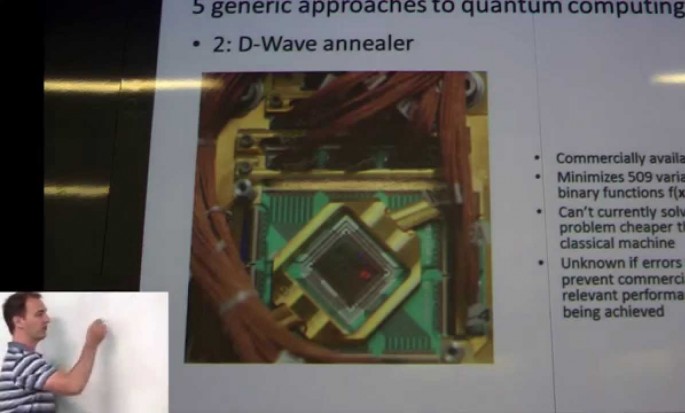It seems the holiday season is early for Google's Quantum Artificial Intelligence Lab.
Google, NASA, and the Universities Space Research Association declared today that they will have the D-Wave 2X, the latest and most powerful quantum computer on the market.
The 2X has double the amount of qubits - a unit of quantum information analogous to a classical bit - from the previous model from D-Wave, to 1000 and works at 15 millikelvins, which is very cold. Google entered a contract with D-Wave to supply it with any updated models they produce with regard to the machine as well.
The new computer will take on the work being done in Google's lab, machine learning, and optimization issues, over time on the D-Wave offered to all partners.
According to Science News, a study by physicist Mattias Troyer shows that quantum computing is a tricky business. In addition to the general premise that uses the laws of quantum physics and embraces randomness, it is not clear how faster quantum computing is currently, as compared to classical computing. Troyer claimed that quantum computers failed to outperform conventional computers on major benchmarks.
Troyer worked in collaboration with physicist John Martinis, who was hired by Google two months later to join the research team for the Quantum AI Lab.
While D-Wave disputes the assertions by Troyer, there has not been much meaningful testing of the technology before.
Google and other investors in this project believe that quantum computing is a way towards more innovative problem solving. According to Google Research BlogSpot, Google likens creative problems to attempting to find the lowest point in a terrain with hills and valleys. Instead of computing the height selectively, investors in the project say quantum computing "tunnels" through the ridges to establish whether the other side is lower.
The groups have explored speech recognition use, robotic missions into space, web search, and air-traffic management, according to D-Wave.
In a statement Center Director at NASA's Ames Research Center, Eugene Tu said, "Through research at NASA Ames, we hope to demonstrate that quantum computing and quantum algorithms may someday dramatically improve our ability to solve difficult optimization problems for missions in aeronautics, Earth and space sciences, and space exploration."





















